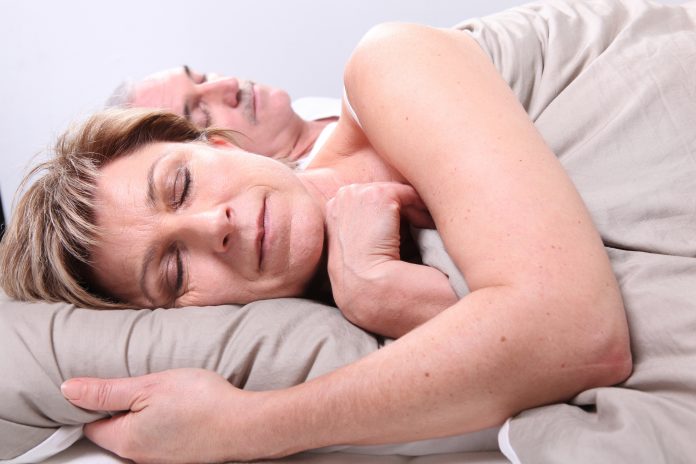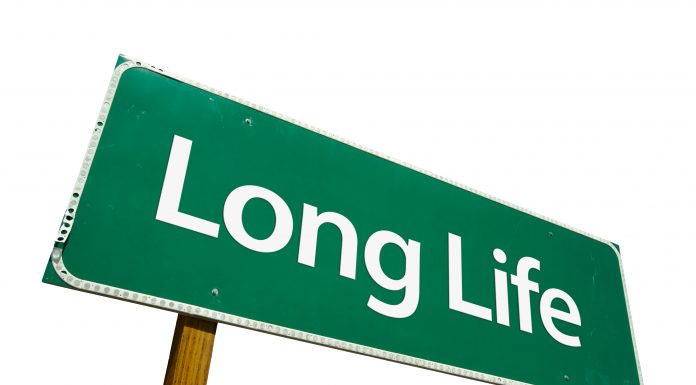Sleep hygiene is concerned with our daily and nightly activities and how each of them impact on our quality of sleep.
Good sleep hygiene can help to dramatically improve our quality and quantity of sleep.
A good sleep hygiene routine may involve making changes to your activities, diet and lifestyle, such as limiting caffeine, taking regular exercise and having a relaxing bedtime routine.
Recommended Sleep
There’s nothing like a really good night’s sleep for its restorative effects; most new mums will tell you it can make the difference between feeling like a three-headed monster and a human being!
Sleep is important for all of us, and has a huge variety of beneficial effects. The National Sleep Foundation (NSF) recommends between seven and nine hours sleep in early and middle adult life.
A good sleep hygiene routine is concerned with all the different elements that affect quality of sleep, and making changes to sleep hygiene can make a big difference to your sleep.
Have you ever considered your sleep hygiene routine? No? Never heard of it? Well if you want to learn more, maybe now’s the time!
What Is Sleep Hygiene?
Sleep hygiene involves a number of different factors which affect our sleep. It’s about what we do during the day and the night, and what impact that has on sleep.
So sleep hygiene is about how much exercise we do and at what time of day, how organized we are, how we manage stress and what we put in our bodies. Sleep hygiene also includes your bedtime routine.
Why Is Good Sleep Hygiene Important?
Good sleep hygiene can make a big difference to how well we sleep each night, and how long we sleep for. Poor sleep hygiene can lead to frequent sleep disturbances, difficulty getting to sleep, or not being able to sleep for long enough.
The effects of not getting enough sleep, or having poor-quality sleep can range from mild tiredness to a serious lack of focus on tasks, and increased risk of having or causing an accident.
Research trials indicate lack of sleep can decrease nervous system and brain function, increase blood pressure, heart rate and the risk of diabetes, make breathing inefficient and impair healing and repair.
In addition, inadequate sleep has been linked with increased anxiety, panic attacks, low mood and depression seriously affecting our judgment, and can lead to an increased risk of having or causing an accident or injury, especially for those driving or operating machinery.
What Is Good Sleep Hygiene?
Here’s our guide to what you need to do for optimal sleep hygiene:
Daytime Naps
Avoid daytime naps unless you really need one. If you do that’s fine, but take them earlier rather than later in the day, and limit them to a maximum of 30 minutes.
Studies show that a 20 to 30-minute nap has restorative effects and helps to improve concentration and focus, even if the person doesn’t sleep for the entire time.
Napping for longer than this can take you into the deeper stages of the sleep cycle, making it more difficult to wake yourself up again. Concentration may be adversely affected, and the quality of night time sleep can be reduced.
Cut the Caffeine
Caffeine is a type of stimulant that increases the level and frequency of nerve signals, wakes you up and boosts energy levels. It’s important to monitor your daily caffeine intake as caffeine can increase heart rate, blood pressure and has a significantly negative impact on sleep, causing changes in sleeping patterns.
Experts at the Mayo Clinic say up to 400 milligrams of caffeine is safe for healthy adults. This equates to around four small regular strength cups of coffee, or two cans of cola.
Studies show that caffeine can have a significantly stimulating effect on the body several hours after consumption. It’s a good idea to avoid all caffeine-containing drinks and foods after midday.
Light Late Meals
There’s some truth in the saying ‘breakfast like a king, lunch like a prince and dine like a pauper’. Eating a very large meal containing rich and fatty foods and strong spices takes a long time and lots of effort and energy to digest.
It can make us feel bloated and uncomfortable, making sleep difficult and can result in painful acid reflux which affects sleep quality. Have a filling, nutritious breakfast and a satisfying lunch.
Avoid heavy foods late in the day. Instead, opt for light snacks, and have lots of fresh, natural foods in the evening rather than fatty, stodgy foods. If you have to have your main meal in the evening, allow at least three hours for your dinner to be digested before you go to bed.
A Little Tipple Before Bed?
Anecdotally, many people subscribe to the idea that a small alcoholic beverage helps to induce sleep. In reality, research suggests it’s not such a good idea.
While studies have found that consuming alcohol before bedtime can help people get to sleep faster, it also significantly reduces the amount of good-quality, deep sleep we have.
In particular, it reduces the proportion of REM, or Rapid Eye Movement, sleep we have in relation to non-REM sleep, disrupting the overall sleep cycle. Research has also shown that the more alcohol is consumed, the more significant the effects on sleep.
Get Physical!
There are many studies that indicate regular exercise is an effective way to improve the quality and duration of sleep. Not all types of exercise are equally effective though, so it’s important to know exactly how exercise helps to improve sleep hygiene.
Researchers at the American Academy of Sleep Medicine have found that, intense aerobic exercise such as running was not as effective as moderate level activities.
The results indicated that walking at a moderate pace had the best effect on improving sleep quality, with participants demonstrating an average of 54 percent improvement in wake to sleep time, 36 percent less waking from sleep and a 37 percent increase in total sleep.
A 10 to 15 minute brisk walk can be surprisingly effective in improving sleep quality. Clinical trials have also shown that exercising in the morning can be much more effective in improving sleep quality than exercising in the evening.
Get Your Dose of Daylight
Some studies show that a reduced amount of sunlight can disturb our biological clock, also known as circadian rhythms. This is our internal system which tells us when to sleep, when to wake and when to eat. It’s heavily influenced by periods of light and darkness and seasonal changes.
Regular exposure to natural light helps to regulate our body clock to anticipate daylight as a period of activity and nighttime as a time for rest and relaxation.
Have a Bedtime Ritual
It’s unreasonable to expect the body to just switch off from the bedlam of daytime. Having an organized bedtime routine helps us make a smooth transition from chaos to calm.
Thirty minutes or more before bedtime, dim the lights, turn off electrical devices—yes, including cell phones! Some people like to have a warm bath, read a book, listen to relaxing music, have a glass of warm milk or herbal tea, like chamomile.
Many people find this time great for meditation, and then report having an excellent night’s sleep; others say they find meditation gives them more energy and makes it more difficult to sleep.
We’re all individuals, and what you choose to include in your bedtime routine should be made up of a schedule of activities you find calming and relaxing. The important thing is to follow your bedtime ritual every evening.
Meditation for Sleep
Meditation is an ancient practice in many different cultures, but is primarily associated with India. Research suggests many benefits of meditation for calming anxiety and relaxing the mind and body.
Meditation is a skill that needs to be developed by regular practice, but has proven to have markedly positive effects of improving sleep quality and sleep hygiene.
If you’re new to meditation, there are many different forms to choose from. One of the simplest techniques is to sit quietly in a relaxed posture and focus all your attention on your breath.
Alternatively, there are lots of different guided meditation tracks available online, and numerous different meditation apps, like this one.
Bedroom Bliss
The atmosphere in the bedroom can dramatically affect sleep hygiene. We generally find active, noisy scenarios stimulating, and can better relax in a calm, quiet, comfortable environment.
Your bed and mattress are key to a good sleep. Check your bedframe is in good repair, and that your mattress is appropriate and comfortable for you. Consider replacing an old, sagging mattress.
Tidying your bedroom, keeping things in their place and aiming for a more minimalist feel can help the room to feel more calm and relaxing. This can be enhanced by low level lighting and the removal of all electrical entertainment equipment.
Make sure the temperature is conducive to sleep. Too much heat can lead to hot and sticky disturbed sleep; too cold can make it difficult to fall and stay asleep. Just below body temperature is about right for most people.
You may even want to think about redecorating your bedroom in more soothing colors. According to established paint producer Benjamin Moore, pale, soft colors like blues, lilacs, creams, whites and greys can help to create a relaxing, soothing space.
Consider your environment. Is your bedroom a nice place to be? If there are piles of books, or the awaiting ironing has found a temporary home, it’s time to declutter, clean, tidy—and perhaps even redecorate to create a haven!
Have a Regular Bedtime
The circadian rhythms ensure that our internal clock is usually predictable. This means you can improve your sleep hygiene by going to bed at the same time every evening.
A regular bedtime reinforces the circadian rhythms so that the body becomes accustomed to anticipating bedtime and will be stimulated to switch off or hibernate non-essential functions to allow us to rest.
If You Can’t Sleep
Good sleep hygiene should help to decrease the amount of restless nights you have. Occasionally, however, we all go through nights when we can’t sleep. Part of good sleep hygiene is knowing what to do if you can’t sleep.
We all wake up sometime during the night for various reasons. When you’ve visited the bathroom or checked on the children, go straight back to bed and try to relax.
If you remain awake for more than 10 minutes, get out of bed. Keep yourself warm, and sit comfortably. Try to relax, and don’t think about not sleeping. If you want to, you can listen to some calming music or quietly read a book—as long as it’s not a thriller!
Don’t use electrical devices; they’ll make your brain think it’s time to wake up, and can make it much more difficult to get back to sleep.
Return to bed when you feel ready for sleep.
Sleep hygiene isn’t just one thing—it considers the whole range of actions in our lives and how they impact on our sleep. Diet and nutrition, exercise and timing of exercise and meal times all have an impact on our sleep hygiene, as well as what we do immediately before bedtime.
Making changes in your life like avoiding caffeine and large, heavy meals late in the day, taking regular exercise (just not right before it’s time for bed) all help to improve sleep hygiene and sleep quality.
This can lead to improvements in mood, reduced risk of depression and anxiety as well as many physiologically beneficial effects, including reduced risk of serious health conditions and lower risk of accidents and injuries.
Particularly if you regularly have trouble sleeping, it’s definitely worth considering any changes you can make to improve your sleep hygiene; most of them are easy to do with a little effort and commitment.























